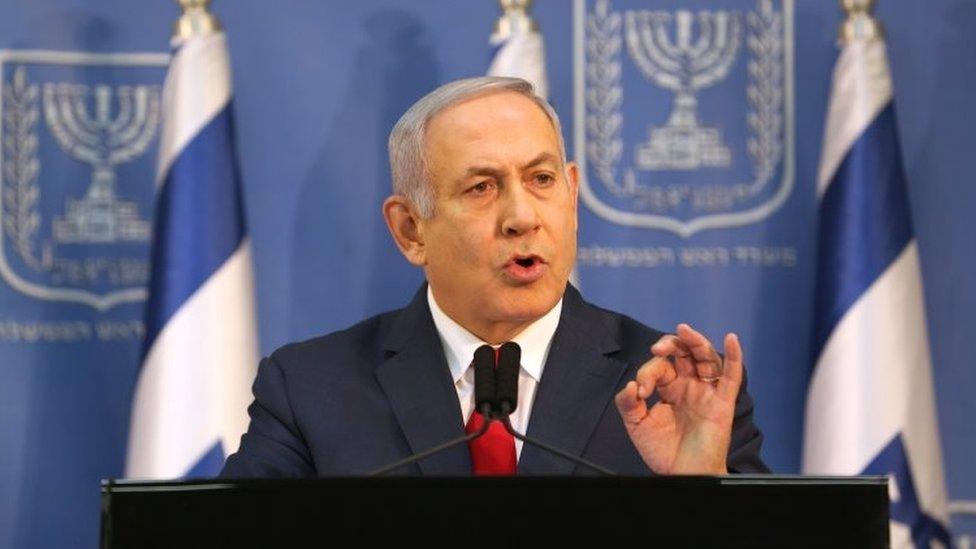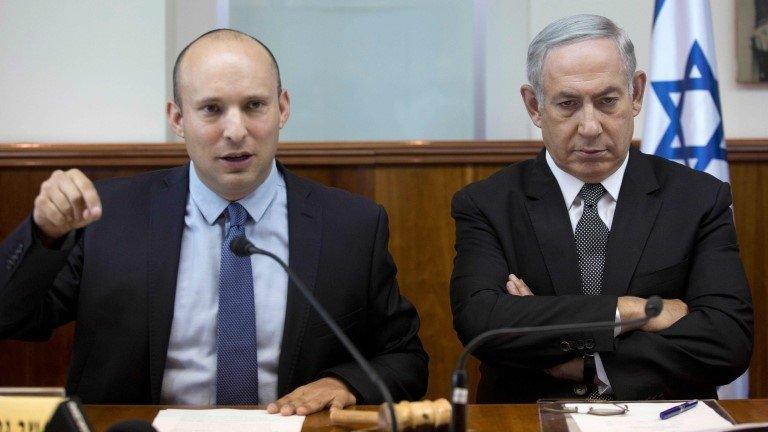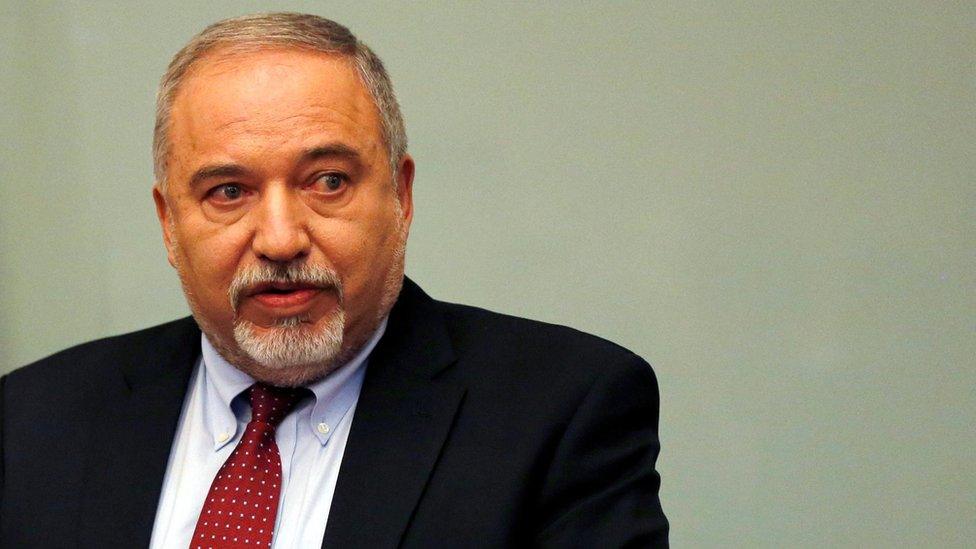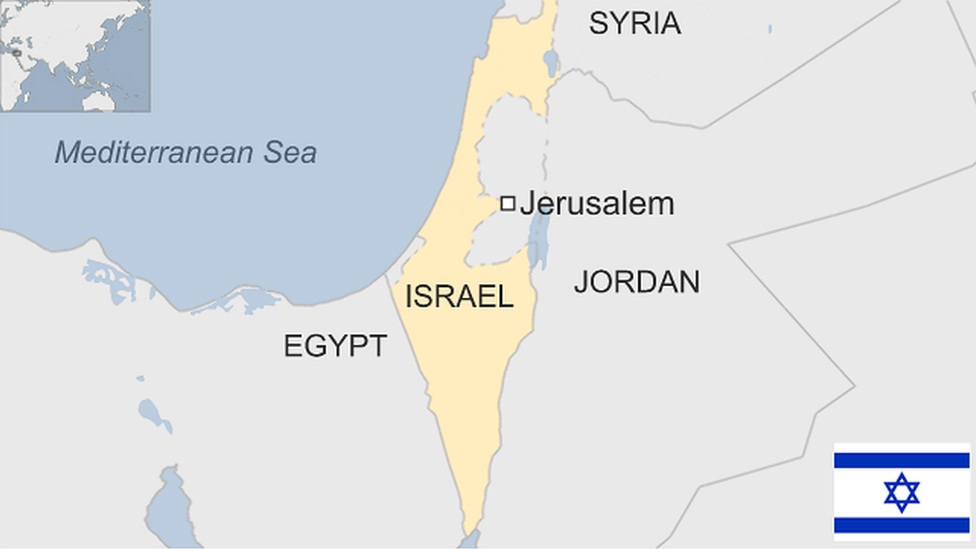Netanyahu warns of danger of early Israel election
- Published

Mr Netanyahu rejected his partners' ultimatum and assumed the contested defence post himself
Prime Minister Benjamin Netanyahu has warned against holding early elections, amid a deepening coalition crisis in his Israeli government.
In a live broadcast on Sunday night, Mr Netanyahu said holding a snap election would be "irresponsible" because of current security concerns.
The crisis began after his defence minister quit last week in opposition to a ceasefire with Gaza militants.
Mr Netanyahu is assuming the post, despite internal coalition resistance.
"In such a period you don't topple a government, in such a period you don't go to elections," Netanyahu said of recent escalation of tensions in the region.
"We have a whole year until the elections, we are at the height of the battle, and in the midst of a battle, you don't desert.
"In the midst of a battle, you don't play politics. The security of the state is beyond politics, and the security of the state is beyond personal considerations."
What has triggered this?
The withdrawal of Avigdor Lieberman and his Yisrael Beiteinu party left the coalition with just a one-seat majority in the Knesset (parliament).
Talks between the PM and another coalition rival, Naftali Bennett, to find a way forward ended without agreement on Friday.

Naftali Bennett (left) and Mr Netanyahu are political rivals
Mr Bennett has threatened to pull his party Habayit Hayehudi out of the government if he is not appointed the new minister of defence.
Mr Bennett's party is the third largest in the coalition. If he pulls out, Mr Netanyahu will be left with an unworkable minority.
Finance Minister Moshe Kahlon's Kulanu party is vital to the governing coalition's survival.
Mr Kahlon has also said he does not think the coalition can continue.
Under the law, elections are not due until November 2019 at the latest.
If elections are called, what will it mean?
The current government has been in power since March 2015. It comprises mostly nationalist and religious parties which take a hard line towards dealing with the Palestinians and reject the notion of trading occupied land for peace.
All Israeli governments are coalitions because of Israel's system of proportional representation, meaning no single party can govern alone.

Avigdor Lieberman said the ceasefire with Hamas was akin to surrender
Although Mr Netanyahu does not want to call early elections, recent polls show he is still a favourite to be prime minister among the electorate, and his Likud party has the most support.
However, even if Likud remains the largest party, that does not necessarily mean it will stay in power if other parties can form a coalition without it.
Mr Netanyahu has won four elections. If he remains in office past 31 May 2019, he will surpass Israel's founding father David Ben-Gurion as the country's longest-serving prime minister.
He warned his colleagues on Sunday that "we know what happens when elements in a right-wing government led to the government being toppled, like in 1992 and in 1999, which brought us the disaster of Oslo [accords with the Palestinians] and the disaster of the [Second] Intifada".
What led to the crisis?
Last Sunday, an undercover Israeli unit was intercepted in Gaza, which is run by the Palestinian militant group Hamas.
An ensuing firefight, in which Israeli tanks and aircraft opened fire, left seven Palestinian militants and one of the Israeli commandos dead.
Hamas unleashed some 460 rockets and mortars at Israel over the next 48 hours - the heaviest barrage since the two sides fought a war in 2014. Israel responded with 160 air strikes, targeting militant sites in Gaza.
The violence killed seven more people in Gaza and one in Israel.
On Tuesday, Hamas and Israel agreed to cease fire after Egyptian mediation.
Mr Lieberman and Mr Bennett both opposed Israel's decision, seeing it as a surrender. Mr Lieberman said it made his position untenable, while Mr Bennett demanded to become defence minister "so that Israel will go back to winning".
- Published13 October 2023

- Published16 January
